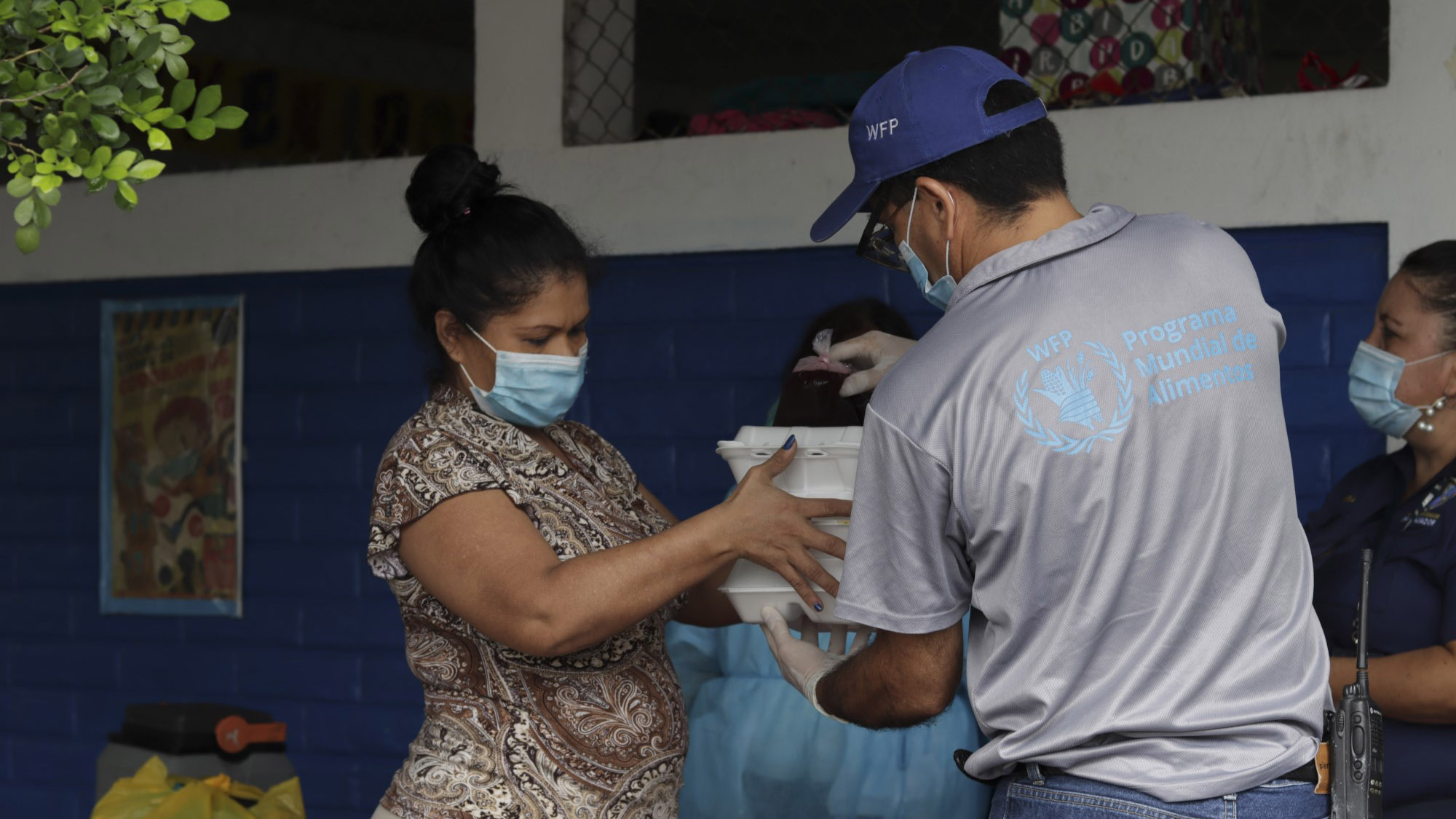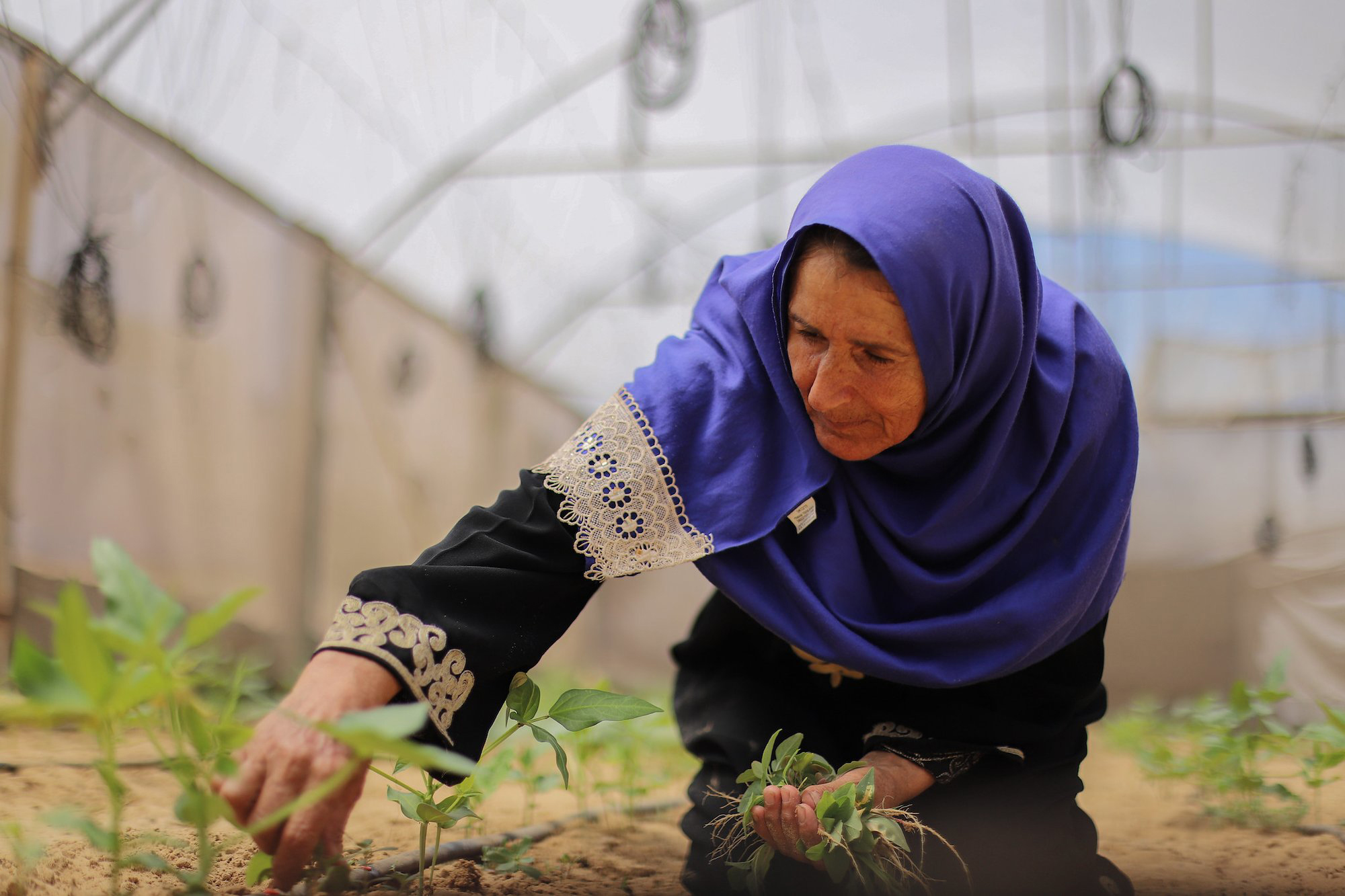Find out more in
How much do you know about food loss and waste? Let’s find out! These brainteasers, quizzes, and crosswords will put your knowledge to the test.
This video features submissions to the “Global Call for Stories: Family farmers at the heart of climate-resilient and sustainable agrifood systems,” organized by FAO’s Family Farming Knowledge Platform and Engagement Units, in collaboration with allies including Access Agriculture, Access Agriculture, Agricultural Extension in South Asia (AESA), Alliance for Food Sovereignty in Africa (AFSA), Asian Farmers' Association for Sustainable Rural Development (AFA), CIRAD, EncontrAR, Latin American Council of Social Sciences (CLACSO), Platform of Latin America and the Caribbean for Climate Action on Agriculture (PLACA), Schola Campesina, and the World Rural Forum.
Land, soil, and water are essential for agriculture and food security, but they face severe pressure due to human activities. Over 60% of human-induced land degradation occurs on agricultural lands, while agriculture utilizes over 70% of global freshwater withdrawal. The new edition of The State of the World’s Land and Water Resources highlights the urgent issues of land degradation, water scarcity, and climate change, and their effects on agricultural productivity and ecosystems. It explores sustainable solutions and integrated approaches for sustainable land, soil and water use and management emphasizing the importance of our current choices to ensure resource protection and meet future demands.
For the Seychelles, a small island developing state in the middle of the ocean, land is limited, and 200 years of human settlement has already seen significant impacts on both terrestrial and marine ecosystems. On the main island of Mahé, where 86% of the population live, land is being actively developed for tourism, agriculture, housing, and other human needs. The impacts of these demands can be seen and felt where today less than 5% of the original native forest remains intact. To reverse this damage and restore degraded land, the project ‘Ridge to Reef’, is working to improve tree cover and restore soil. Funded by the Global Environment Facility (GEF) and implemented by the Seychelles Government in partnership with UNDP, the 'Ridge to Reef' approach focuses on the connection between land and sea to address environmental degradation. Nelson Renaud, chairman of the Local Food Producers Association, says "By taking care of the land, we can grow food that will take care of our community."
In Peru, the Awajun community, supported by the Avanzar Rural project, adapts cacao farming to climate change, improving yields, incomes, and market access for smallholders.
Adaptation can seem daunting for rural businesses, but it’s a win-win. By adopting sustainable farming techniques like agroforestry, small-scale farmers can drive economic growth while protecting their land.
In the third episode in IFAD's “Life stories” mini-series, we head to the Peruvian Amazon to see adaptation in action. Join us as IFAD Recipes for Change chef Waldir Maqque meets with Ruth, whose farmers’ association has become a key player in the local cacao value chain with IFAD’s support.
As dawn breaks over the Ororubá Mountains in Pernambuco, Brazil, Indigenous youth from the Xukuru do Ororubá people work in a nursery, reviving native plant species, especially those with medicinal value. Led by Ângela Neves Pereira (“Bella”), they aim to restore not just the land but their cosmogony, identity, culture and balance. Since 2023, the Xukuru people and the Food and Agriculture Organization (FAO) have collaborated on Indigenous Peoples' biocentric restoration, a method that prioritizes the well-being of all living things within an ecosystem. Supported by Brazil’s government and FAO’s AIM4Forests programme, this initiative enhances Indigenous knowledge and aims to restore at least 30% of degraded ecosystems by 2030.
A small-scale farming initiative, launched in May 2025 by FAO and funded through the OPT Humanitarian Fund, has provided urgently needed cash assistance to farmers in Gaza to restart vegetable production. One beneficiary, 60-year-old Susan Allaham, returned to cultivation on her land in Khan Younis after the war halted her farming for years. Respite extreme challenges — lack of inputs (fertilizer, seeds, pesticides), damaged land, high prices, and a broader food-security collapse after two years of conflict — about 200 farmers are now growing vegetables again, offering a small “seed of hope.” Vegetables are seen as vital sources of vitamins and nourishment, especially for children and pregnant women. However, as of mid-October 2025, only about 4 % of Gaza’s agricultural land remained accessible and intact, underscoring how limited this recovery is. For farmers like Susan, this cultivation is their only means of livelihood, and if conditions — including the ceasefire — hold, they plan to expand production farther, reclaiming their land and supporting their families.
Family farms, when backed by smart public and blended financing, can become powerful drivers of food security, rural prosperity and climate resilience.
Agriculture and food security face severe threats from increasing disasters, which have caused an estimated $3.26 trillion in losses over the past 33 years, about $99 billion annually. A new report by the Food and Agriculture Organization (FAO) highlights how digital technologies are enhancing risk monitoring and response. It provides a comprehensive assessment of how various disasters disrupt food production and nutrition. Digital innovations are facilitating a shift from reactive crisis management to proactive resilience-building, with tools such as parametric insurance and early warning systems enabling communities to mitigate risks effectively.
FAO’s documentary highlights how anticipatory action engages communities to build inclusive, timely, and resilient disaster preparedness.
UN agencies warn that acute food insecurity is set to worsen in 16 countries and territories in the coming months, urging immediate humanitarian action in hunger hotspots. Here are five key facts.
UN agencies warn that acute food insecurity is set to worsen in 16 countries and territories in the coming months, urging immediate humanitarian action in hunger hotspots. Here are five key facts.
Around the world, small-scale farmers are pushing our food systems to evolve. They’re the key to producing enough safe, nutritious food to feed the world sustainably.
In this episode, we explore how IFAD works hand in hand with rural communities to build a more nourishing future. Learn how innovative agroecology projects are driving economic growth and hear directly from IFAD’s President, Alvaro Lario, about how school meals are inextricably linked to resilient local food systems.










